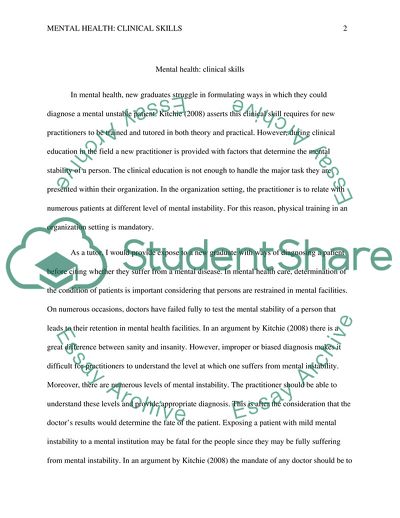MENTAL HEALTH TEACHING Assignment Example | Topics and Well Written Essays - 1000 words. https://studentshare.org/medical-science/1829809-mental-health-clinical-skills
MENTAL HEALTH TEACHING Assignment Example | Topics and Well Written Essays - 1000 Words. https://studentshare.org/medical-science/1829809-mental-health-clinical-skills.


